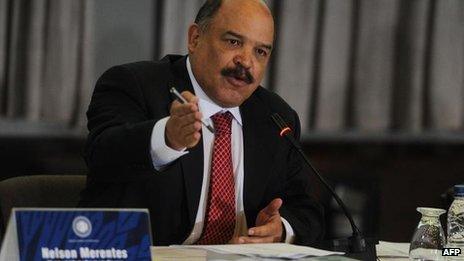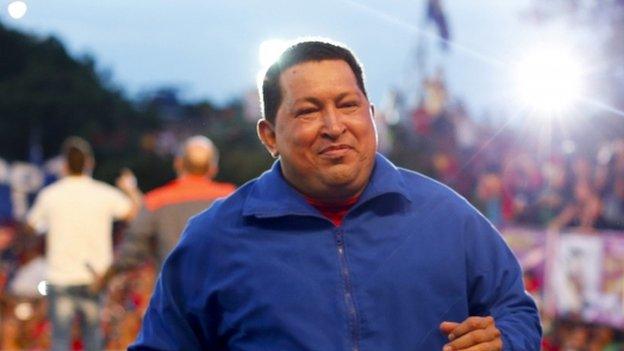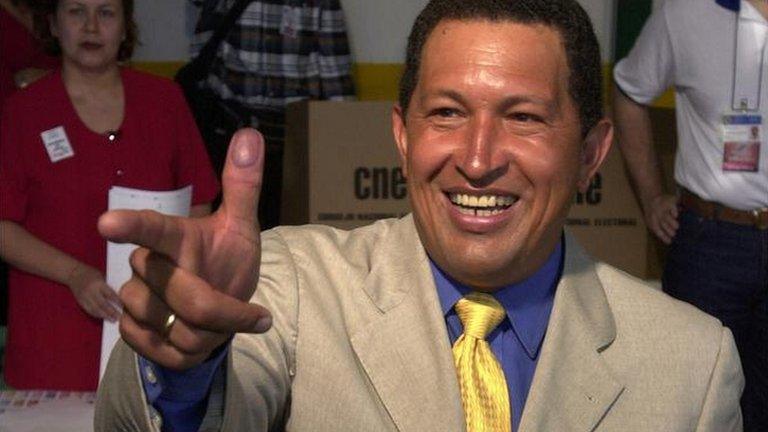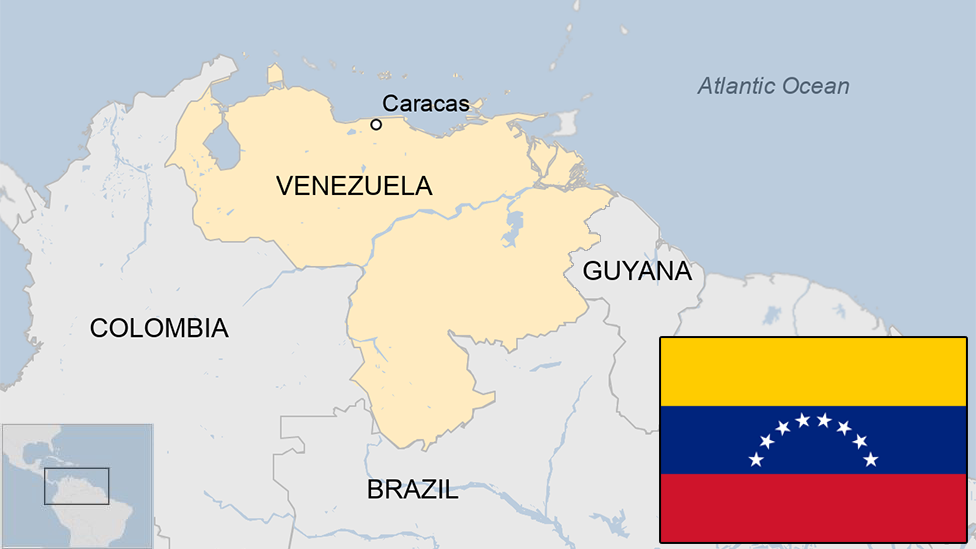Venezuela admits its economy has 'structural problems'
- Published

Venezuelan finance minister Nelson Merentes says the government needs to reform the economy
Venezuela's finance minister has acknowledged that the economic policies of late President Hugo Chavez and his successor have not yet succeeded.
Nelson Merentes said the government had "improved" the living standards of many Venezuelans, but not solved the "structural problems" of the economy.
Generous government subsidies have slashed poverty and inequality.
But Venezuelans are suffering from the highest inflation in Latin America, sluggish growth and shortages.
"This is a government that has won 18 elections, that has had social achievements," Mr Merentes told Televen television.
"But it still has to be successful on the economy."
He said laws had to be reformed to stimulate growth.
"We need to enter a route of stable growth... and go through years where all economic factors are growing."
'Mismanaged' oil wealth
According to the BBC's Irene Caselli in Caracas, the finance minister's remarks were an unprecedented analysis of the country's economic ills coming from a top government official.
Nelson Merentes acknowledged the government had an unpaid debt with the Venezuelan population when it came to the economy, she added.
Many poorer Venezuelans have benefited from the country's immense oil reserves - the largest in the world - through Mr Chavez's social programmes.
But his government's monetary policy, nationalisation of key industries and management of public funds have been blamed for high inflation, under-performing industry and shortages of basic supplies.
Hugo Chavez died of cancer in March after 14 years in power.
He was replaced by his vice-president and handpicked successor, Nicolas Maduro, who pledged to continue his policies.
- Published5 March 2013

- Published6 March 2013

- Published9 September 2024
